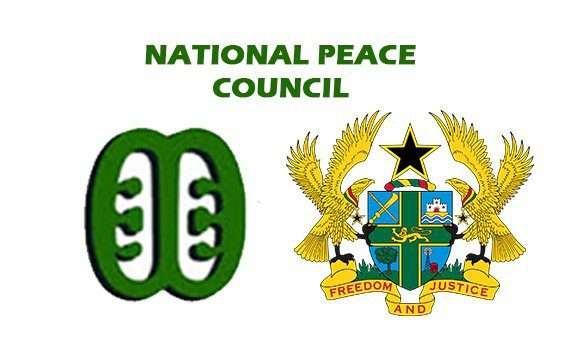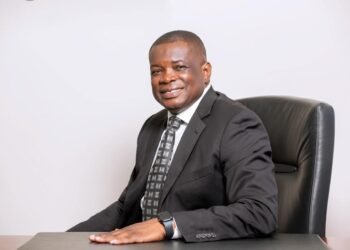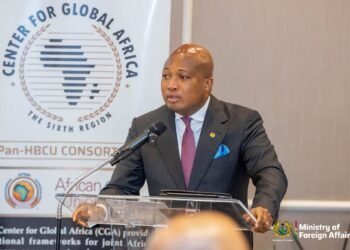Dr. Ernest Adu-Gyamfi, Chairman of the National Peace Council (NPC), has stated that electoral violence is a deliberate act aimed at manipulating electoral processes.
Dr. Adu-Gyamfi pointed out that certain political parties’ actions, which promote electoral violence, are deliberately provocative.
He observed that this issue is a recurring theme throughout the electoral cycle, spanning from the announcement of elections to the party primaries, voter registration, voting, and post-election phases.
“All of these things are done specifically to manipulate the process and it is important that the public understands these things to determine what to do with it. Because if we don’t, and we allow these processes to continue, it is likely to lead us into a much more severe situation”.
“For us as a Peace Council, our preparation for this election began immediately after the last election. First, we went to constituencies where some people died. In all five constituencies, we had dialogues there to help the people to heal [and] to understand what exactly happened there. And then out of that, we held a dialogue in Ada for four days involving all the political parties”.
Dr. Ernest Adu-Gyamfi, Chairman of the National Peace Council
Dr. Adu-Gyamfi reported that the multi-stakeholder dialogue in Ada brought together political parties, civil society organizations (CSOs), and academics to discuss and consensus on measures to prevent electoral violence.
He noted that the Peace Council has implemented all its assigned tasks from the dialogue, including successfully facilitating the NDC’s return to IPAC in December.
Additionally, the NPC Chairman reported that the Council has produced and shared with political parties a comprehensive guide on recognizing and avoiding hate speech and intemperate language.
He also mentioned that the Council has facilitated a series of dialogues among security agencies, political parties, civil society organizations (CSOs), and traditional leaders, aimed at promoting a peaceful and violence-free electoral process.
NPC To Roll Out Peace Dialogue Program Nationwide
Moreover, Dr. Adu-Gyamfi announced that the NPC will be rolling out its peace dialogue program to every constituency nationwide, totaling 276, in an effort to ease current political tensions and foster a harmonious electoral environment.
According to Dr. Adu-Gyamfi, the NPC has joined forces with key media stakeholders, including the Ghana Journalism Association, Media Foundation of West Africa, and Fact Check Ghana, to equip 150 media practitioners with the skills to deliver balanced and truthful reporting.

“Now the Peace Council’s work is to help us [Ghanaians] have sustainable peace which means that what we do is not just a one-stop thing but how can we influence people such that they will not do what they are doing again”.
“Let me add that because social media influencers are not in a place like mainstream media, it’s sometimes difficult to identify who these are, where they are, and what they are doing. That is why all Ghanaians must be very discerning to understand what is going on and to help mitigate some of these influences that we are having coming into our country”.
Dr. Ernest Adu-Gyamfi, Chairman of the National Peace Council
Dr. Adu-Gyamfi also pointed out that a key challenge facing the Council is the inability of political parties to effectively cascade the knowledge and principles learned during the dialogues down to their grassroots supporters.
He observed that this has resulted in a significant disconnect between the grassroots supporters and the leadership of political parties, leading to challenges and difficulties in implementing change at the local level.
He warned that if a political party initiates violence to manipulate the system, it can trigger a ripple effect, unleashing a wave of violent behavior among grassroots supporters who may be provoked into retaliatory actions.
Dr. Adu-Gyamfi noted that another significant challenge for the NPC is that some political parties covertly sponsor or utilize vigilante groups, which can eventually become uncontrollable and pose a threat to peace and stability.
He explained that the NPC’s strategy is to engage directly with vigilante groups and grassroots communities, bypassing political parties, to raise awareness about the devastating effects of electoral violence, and promote peaceful elections.
READ ALSO: Actress Cites ‘Daughter’ as Inspiration Behind Her Educational Entrepreneurship Journey





















